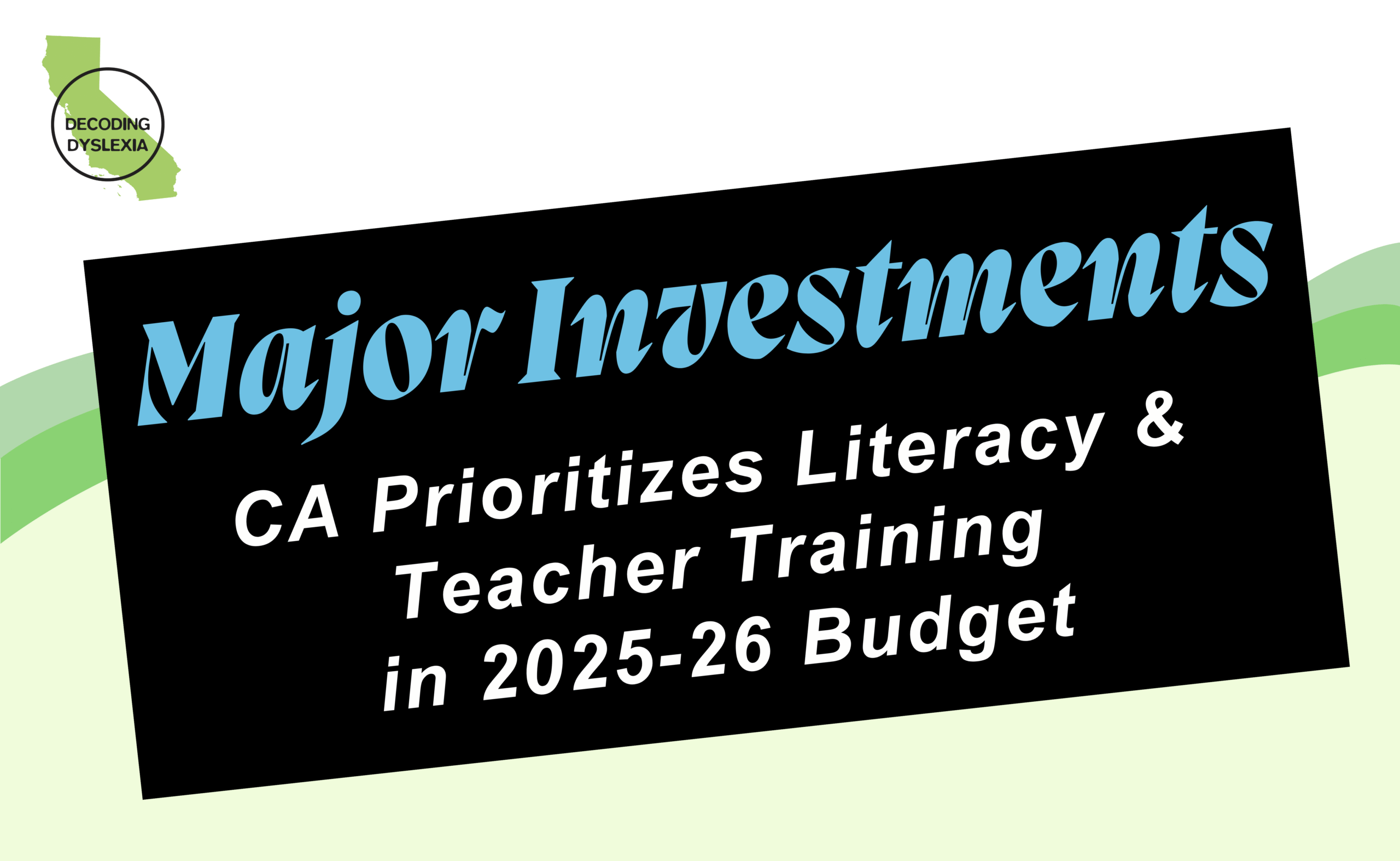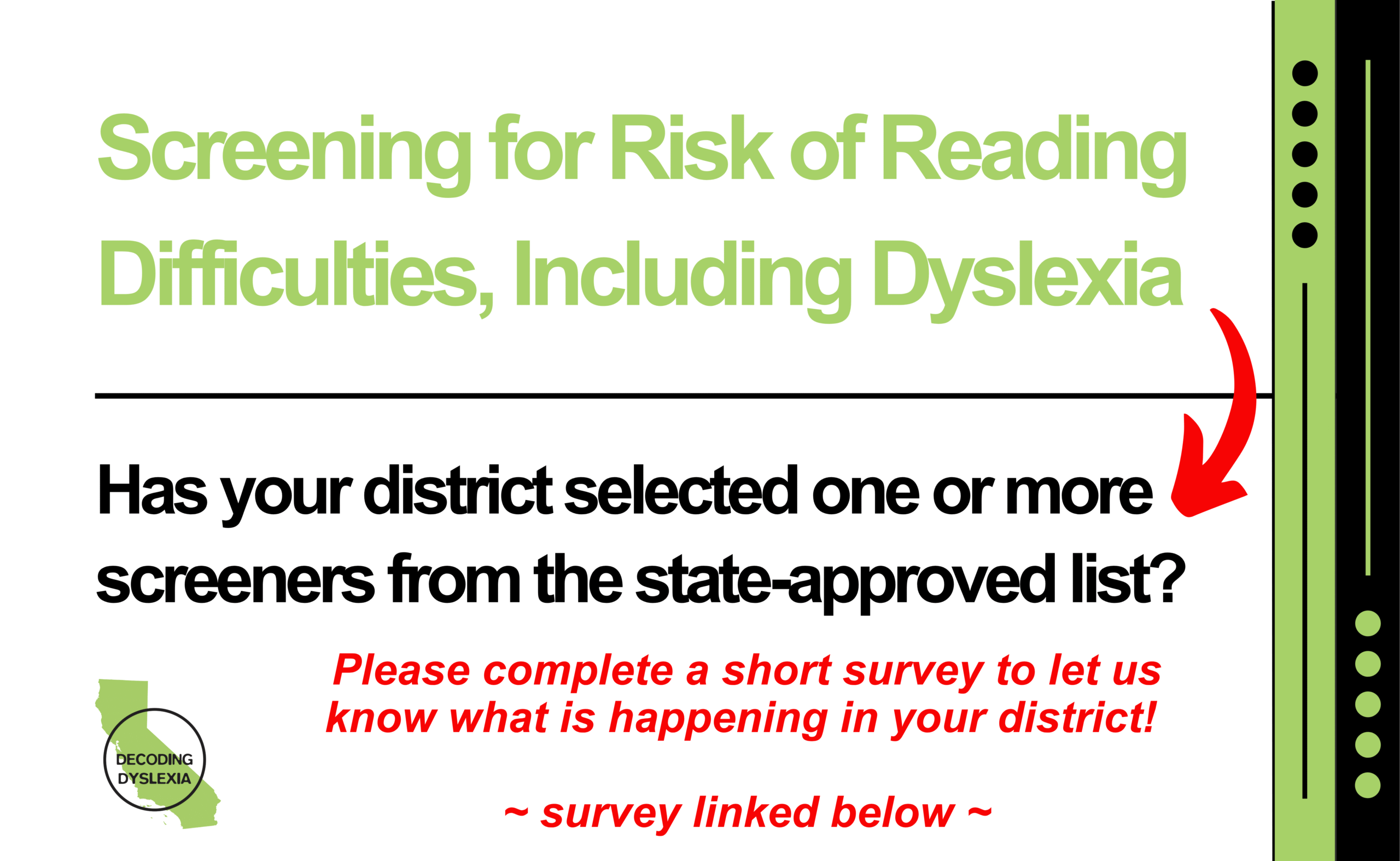On June 27, 2025, Governor Newsom signed the 2025-26 Budget, which includes $200 million to be allocated for teacher training in effective means for teaching literacy.
Effective means for teaching literacy includes, “evidence-based means of teaching foundational reading skills, which shall include explicit and systematic instruction in print concepts, phonological awareness, phonics and word recognition, and fluency, attending to oral language development, vocabulary and background knowledge, and comprehension, including tiered supports for pupils with reading difficulties, English learners, and pupils with exceptional needs” as stated in the Education Omnibus Budget Trailer Bill, AB 121. See excerpted bill language here.
This investment in professional development is a long-awaited commitment to CA’s children and is a promise to prioritize their right to read by adequately training teachers in methods based on decades of scientific research. This is a major achievement only made possible by our unwavering grassroots efforts, over many years, to ensure every child in California learns to read.
Decoding Dyslexia CA thanks Governor Newsom, Speaker Rivas, Assemblymember Rubio, Assemblymember Muratsuchi for their strong leadership and also partners EdVoice, Families in Schools, and California Hawaii State Conference NAACP for their tremendous advocacy.
With teacher training now included in the signed 2025-26 Budget, AB 1454 has been amended to remove the professional development section.
AB 1454 is continuing its journey through the legislative process with a hearing in the Senate Education Committee set for the morning of Wednesday, July 9th. DDCA and the other Early Literacy Coalition partners will be attending the hearing to show strong support for the bill. If you would like to join us in Sacramento and be informed of the details as they firm up, please email DecodingDyslexiaCAinfo@gmail.com.
Lastly, we are thrilled to share that in addition to teacher training in evidence-based reading instruction, the 2025-26 Budget also includes investments to support the implementation of screening for risk of reading difficulties, which is mandated to begin this coming school year. DDCA advocated for years for this requirement, and we are excited to see state resources being dedicated towards its success. The bill allocates the appropriated funds, of $40,000,000, to school districts throughout CA to support screening implementation. See excerpted bill text here.
In addition, $10,000,000 is designated to the California Dyslexia Initiative to contract with the University of California, San Francisco Dyslexia Center towards the expansion and support of a free screening tool designed for California’s diverse pupil population. See excerpted bill text here.
We will continue to provide updates on AB 1454’s journey through the Senate, so please encourage your community – families, educators, and advocates – to sign up for DDCA emails to stay informed of this important bill.


